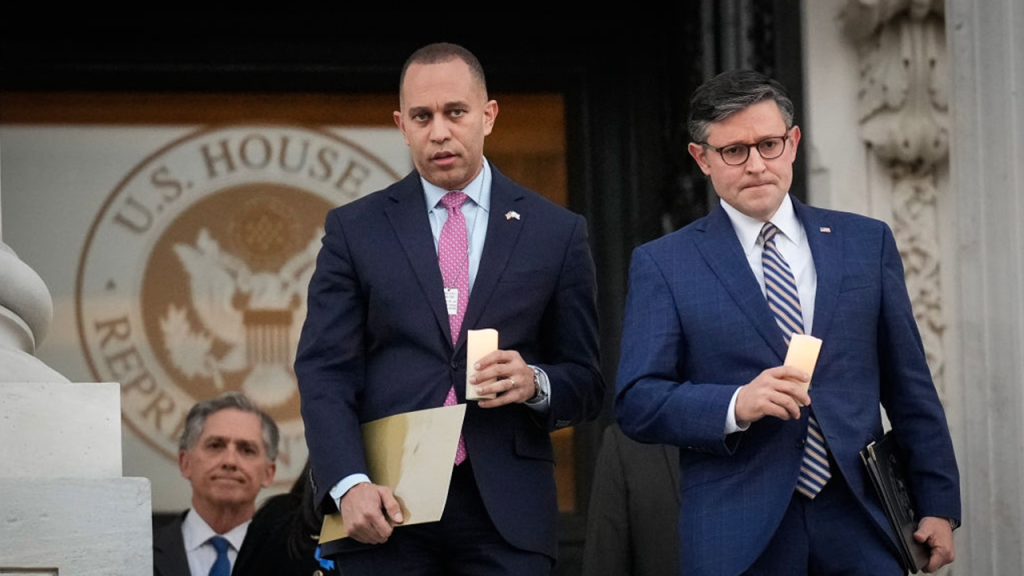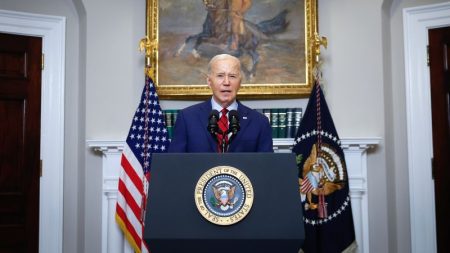House Speaker Mike Johnson’s $95 billion foreign aid proposal was able to survive a key test vote, setting up House lawmakers to consider its four components sometime on Saturday. This occurred after Democrats broke party norms to support the plan through a rule vote, which passed 316-94. Rep. Jim McGovern, the top Democrat on the House Rules Committee, emphasized the importance of moving the legislation forward, despite the political differences at play. The rule vote now paves the way for debate on the individual bills and subsequent amendment votes on Saturday.
The urgency to provide aid to foreign allies led to Democrats crossing the aisle on the rule vote, which is a rare occurrence in American politics. This move highlights the concern lawmakers on both sides of the aisle have when it comes to supporting key allies abroad. The House Republican Conference, led by Speaker Johnson, is currently dealing with internal fractures as conservative members express dissatisfaction with the foreign aid proposal. Despite this, three of the four bills included in the proposal focus on funding for Ukraine, Israel, and the Indo-Pacific, emphasizing the importance of addressing national security priorities.
Speaker Johnson’s emphasis on providing foreign aid has caused frustration among some members of the House GOP who believe the focus should be on domestic issues like border security. Republican Rep. Thomas Massie even threatened to oust Johnson if he did not step aside after a House vote on the foreign aid plan. This added pressure on Johnson, who is already navigating a slim majority in the House, highlights the challenges he faces in managing the differing perspectives within his party. Rep. Marjorie Taylor Greene has also introduced a motion to vacate resolution aimed at potentially ousting Johnson, further complicating the situation.
During the debate leading up to the final vote, Massie expressed his concern about the Speaker’s decision to prioritize foreign wars over border security. Greene’s amendment to remove all Ukraine funding from the foreign aid bill will likely receive a vote on Saturday, reflecting the divide within the House GOP on this issue. The House Republicans continue to express frustration with the threat to oust Speaker Johnson, with some describing the situation as the “definition of insanity.” The level of tension within the party highlights the complex dynamics at play within the House as lawmakers work to address critical issues like foreign aid while also managing internal disagreements.
Overall, the passage of the rule vote and the subsequent debate on the foreign aid proposal reflect the diverse perspectives within the House of Representatives. The internal divisions within the Republican Party, as well as the willingness of Democrats to collaborate on certain issues, highlight the challenges Speaker Johnson faces in leading a historically slim majority. The emphasis on supporting foreign allies through the aid proposal demonstrates the importance lawmakers on both sides place on national security priorities, while also revealing the differing priorities and perspectives within the House GOP. Ultimately, the outcome of the debate on the foreign aid proposal will shed light on how lawmakers navigate these complex political dynamics in their efforts to address key issues facing the country.















